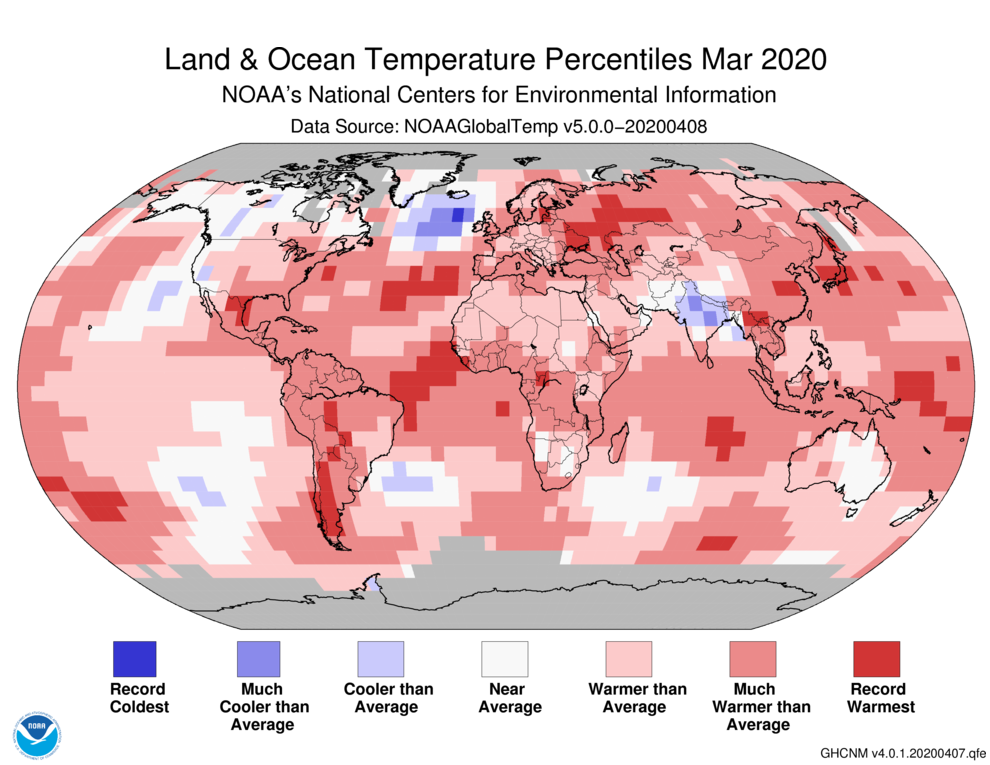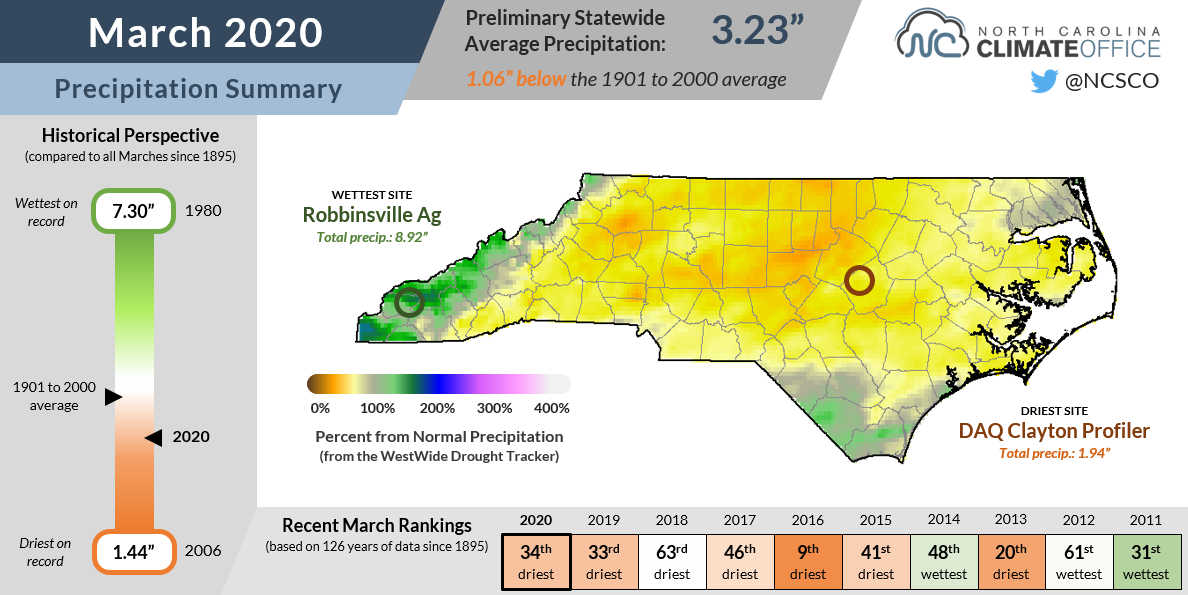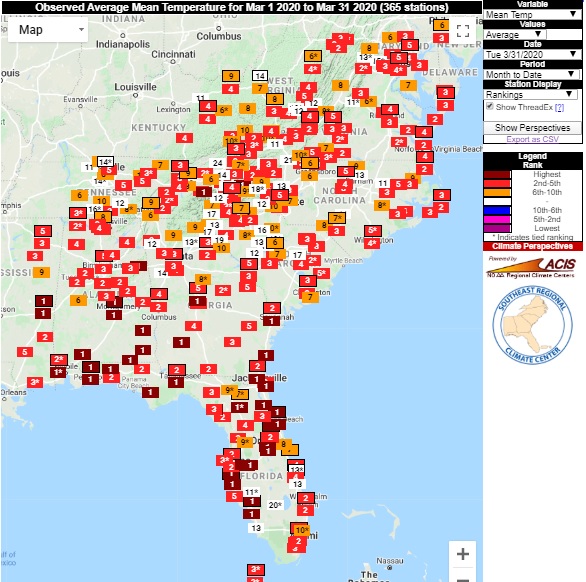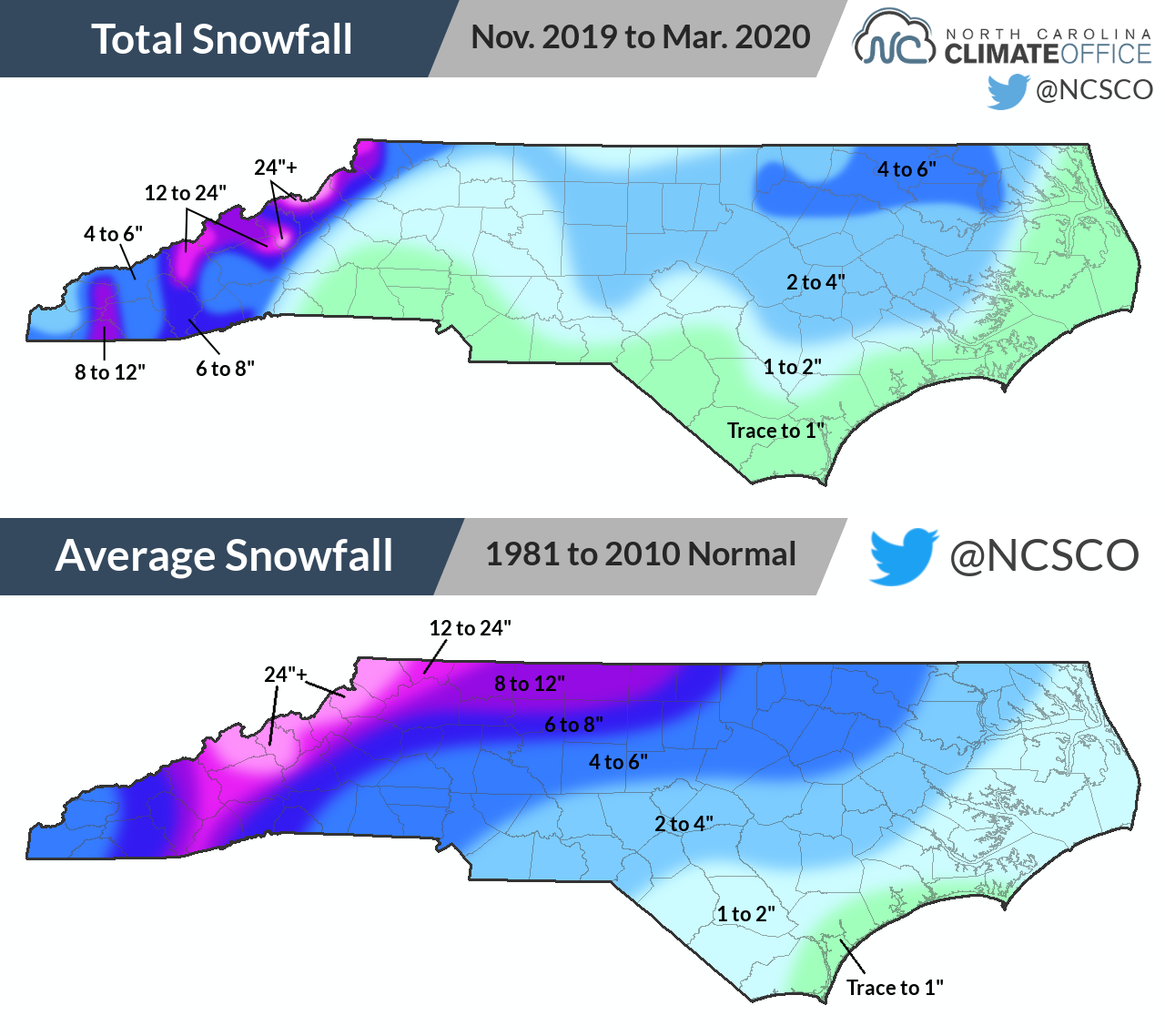Climate summaries
-

The latest monthly global climate summary was released today by NOAA. It shows that March 2020 was the second warmest March in 147 years, behind only March 2016, when a strong El Nino was occurring. It was also one of the warmest of any months across the globe. January through March 2020 was also the…
Posted in: Climate summaries -

The latest monthly climate summary for March 2020 is now available from the North Carolina Climate Office. You can find it at https://climate.ncsu.edu/climateblog?id=314&h=5666e5c1.
Posted in: Climate summaries -

NOAA’s latest climate summary for March 2020 was released today. In it they show that March was the 10th warmest on record and was in the top third of years for precipitation. They also noted that so far this year the US has had two billion-dollar disasters, both due to severe weather. You can read…
Posted in: Climate summaries -

The latest monthly summary of climate conditions is now available from the Southeast Regional Climate Center. You can access it at https://sercc.com/SoutheastRegionMonthlyClimateReportMarch2020.pdf.
Posted in: Climate summaries -

The end of March has come, and what a month it has been! While climate is not on the top of many folks’ minds these days, it’s still a welcome diversion from other conversations. This March has been well above normal across the region again, and many stations experienced temperatures that were ranked in the…
Posted in: Climate summaries -

With just a couple of days to go until the end of the month, I thought I would show the maps for the month to date (through the 29th). The temperature map shows that the entire region was above normal in temperature, which is probably no surprise to anyone in the area. The precip map…
Posted in: Climate summaries -

The North Carolina Climate Office has released their climate summary for the winter season of 2019-2020. You can read it at https://climate.ncsu.edu/climateblog?id=313&h=5666e5c1 .
Posted in: Climate summaries